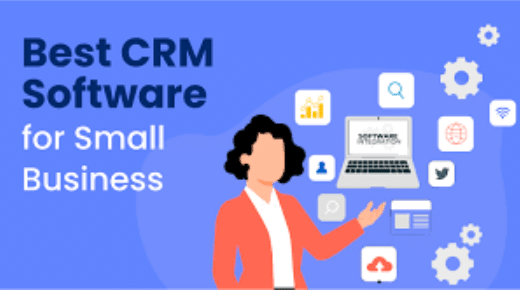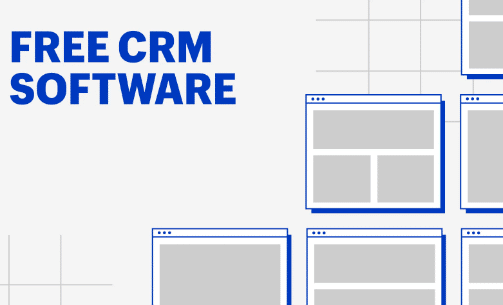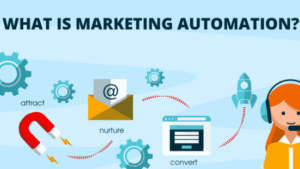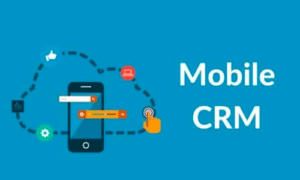crm.klikjabar.id – In today’s competitive business landscape, small businesses are striving to maximize their efficiency and improve customer relationships to achieve sustainable growth. The right Customer Relationship Management (CRM) software can be a game-changer for small enterprises. This comprehensive guide will walk you through the best CRM software for small businesses, giving you insights, expert advice, and real-world experiences to help you make the most informed decision for your business’s success.
Best CRM Software For Small Business: Enhancing Growth

In this section, we will explore the top CRM software solutions tailored specifically for small businesses. These platforms are feature-rich, user-friendly, and designed to streamline processes, boost productivity, and improve customer interactions.
1. HubSpot CRM: Unleashing the Power of Integration
HubSpot CRM has earned its reputation as one of the best CRM solutions for small businesses. With its intuitive interface and seamless integration with various marketing and sales tools, HubSpot allows small businesses to centralize their operations and automate repetitive tasks. From managing leads to tracking deals, HubSpot CRM empowers small businesses to focus on what truly matters – building meaningful connections with customers.
2. Salesforce Essentials: Power Meets Simplicity
Salesforce Essentials is the ideal CRM software for small businesses that seek scalability and customization. As a pioneer in CRM technology, Salesforce offers an array of features tailored to the unique needs of small enterprises. From contact management to sales forecasting, Salesforce Essentials provides a robust solution to optimize your sales pipeline and drive growth.
3. Zoho CRM: Feature-Rich & Budget-Friendly
Zoho CRM caters to the budget-conscious small business owner without compromising on functionality. Its user-friendly interface and extensive customization options make it a popular choice. Zoho CRM provides a holistic view of your customer interactions, allowing you to nurture leads, automate workflows, and collaborate seamlessly across your organization.
4. Pipedrive: Your Sales Assistant on Steroids
Pipedrive is a sales-focused CRM platform designed to simplify the sales process for small businesses. With its visual pipeline and deal tracking, Pipedrive keeps your sales team organized and focused on closing deals. Its user-friendly mobile app ensures that you can manage your sales on the go, making it an ideal choice for small businesses with remote teams.
5. Insightly: A CRM & Project Management Powerhouse
Insightly combines CRM capabilities with robust project management tools, making it a go-to choice for small businesses with complex projects. By seamlessly integrating customer information and project details, Insightly helps you streamline your operations, improve efficiency, and deliver exceptional customer experiences.
How CRM Software Transforms Small Businesses

In this section, we delve deeper into the transformative impact of CRM software on small businesses. By understanding the potential advantages, you can identify how these tools align with your business goals and unique requirements.
a. Enhanced Customer Insights & Personalization
CRM software empowers small businesses with valuable customer insights. By tracking interactions, purchase history, and preferences, businesses can deliver personalized experiences that build lasting customer loyalty.
b. Streamlined Sales Processes
With CRM software, managing sales pipelines becomes a breeze. Automation of lead nurturing, email campaigns, and deal tracking allows sales teams to focus on building relationships and closing deals, rather than getting bogged down in administrative tasks.
c. Efficient Team Collaboration
CRM platforms enable seamless collaboration among teams. From sales and marketing to customer support, everyone can access up-to-date customer information, ensuring consistent and coordinated efforts across the organization.
d. Data-Driven Decision Making
By leveraging data analytics, CRM software provides valuable insights into sales performance, customer behavior, and market trends. This data-driven approach allows small businesses to make informed decisions that drive growth and profitability.
Best Practices for Implementing CRM Software
While choosing the right CRM software is crucial, successful implementation is equally important. Follow these best practices to make the most of your CRM investment:
1. Define Clear Objectives
Begin by identifying your specific business objectives for CRM implementation. Are you aiming to boost sales, improve customer satisfaction, or streamline internal processes? Align your CRM strategy with your business goals.
2. Thoroughly Train Your Team
Proper training is key to maximizing the benefits of CRM software. Ensure that all users understand the system’s functionalities and can utilize them effectively to enhance productivity.
3. Integrate with Existing Systems
Integrating your CRM software with other business tools, such as email marketing platforms and project management software, ensures seamless data flow and avoids duplication of efforts.
4. Regularly Update & Cleanse Data
Maintaining accurate and up-to-date data is essential for a successful CRM implementation. Regularly clean and update your database to ensure the accuracy of your customer insights.
5. Monitor & Measure Performance
Set key performance indicators (KPIs) to track the success of your CRM strategy. Continuously monitor and analyze data to identify areas for improvement and make data-driven decisions.
Frequently Asked Questions (FAQs)
Q: How do I choose the best CRM software for my small business?
Choosing the right CRM software requires considering factors like your business needs, budget, and scalability. Assess the features, integrations, and customer support offered by different platforms to make an informed decision.
Q: Can CRM software help improve customer retention?
Yes, CRM software can significantly impact customer retention by enabling personalized interactions, effective follow-ups, and timely resolution of issues, leading to enhanced customer satisfaction.
Q: Is it possible to migrate data from an existing CRM to a new one?
Most CRM platforms offer data migration services or provide tools to import data from other systems. It is essential to ensure data compatibility and conduct thorough testing during the migration process.
Q: What are the security measures for protecting customer data in CRM systems?
Top CRM software providers employ robust security protocols, including data encryption, user access controls, and regular data backups, to safeguard customer information from breaches and unauthorized access.
Q: Can I integrate CRM software with my e-commerce platform?
Yes, many CRM platforms offer integrations with popular e-commerce platforms. Integrating CRM with your e-commerce system allows you to track customer behavior, manage orders, and optimize marketing efforts effectively.
Q: How soon can I expect to see results after implementing CRM software?
The timeframe for seeing results varies depending on your business’s complexity and the effectiveness of your CRM strategy. In some cases, businesses notice improvements within a few weeks, while others may take a few months.
Conclusion
Investing in the best CRM software for your small business can be a game-changer, enabling you to optimize processes, strengthen customer relationships, and boost your bottom line. Remember to define your objectives, choose the right CRM platform, and invest in proper training for your team to maximize the benefits of CRM implementation. Embrace the power of CRM, and watch your small business thrive in today’s dynamic market.


